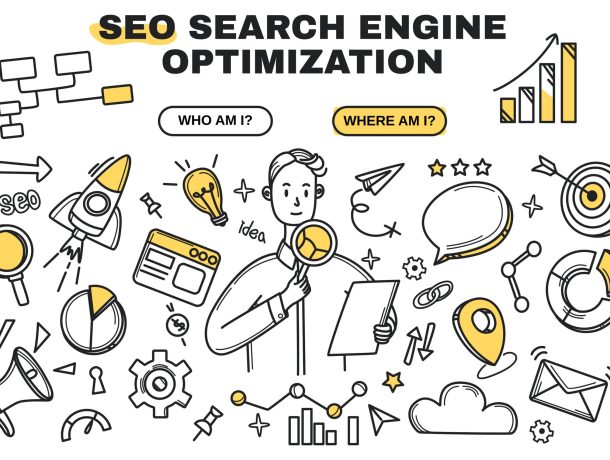
- November 20, 2024
- Digital Marketing, seo tools
- Search Engine Optimisation (SEO)
Table of Contents
SEO tools are essential for developing an efficient keyword strategy since they provide data-driven insights that assist marketers in determining which keywords to target. These tools help users find high-value keywords, analyze competition, track search trends, and determine keyword difficulty. Marketers may make more educated decisions by employing SEO tools, which help them focus on keywords that are most likely to boost visibility, attract the correct audience, and drive organic traffic. Furthermore, SEO tools simplify the research process, allowing users to identify opportunities that match their objectives and adjust their strategy when search engine algorithms and user behavior change.
Role of SEO Tools in Keyword Strategy
SEO tools are critical for developing an effective keyword strategy since they provide specific information about how keywords perform and how competitive they are in search rankings. At their heart, these tools assist marketers in identifying high-potential keywords based on criteria such as search volume, relevancy, and competition, allowing them to carefully target terms that will generate quality traffic.
Key components of SEO tools in keyword strategy are:
- Keyword Discovery: SEO tools help customers locate popular and relevant keywords for their sector. They recommend similar terms, trending inquiries, and long-tail keywords that, while not immediately obvious, can attract certain audiences.
- Competition Analysis: SEO tools allow businesses to analyze which keywords competitors rank for, providing insight into effective terms and gaps.insight into effective terms and market gaps. Understanding competitive performance allows marketers to adapt their approach and target keywords with a high possibility of ranking.
- Keyword Metrics: These tools provide essential metrics such as search volume (how frequently people search for a term) and keyword difficulty (how difficult it is to rank for a term), helping marketers to choose keywords with a high traffic potential while still meeting competition levels.
- SERP Analysis: Many SEO tools have SERP (Search Engine Results Page) analysis features that display the types of results that rank highest for a specific keyword. This insight assists marketers in understanding the most effective content forms, assisting them in developing content that is relevant to user intent.
- Tracking and reporting: SEO tools allow you to track keyword rankings over time and analyze keyword performance. This allows marketers to track the effectiveness of their plans over time and make data-driven changes to improve outcomes.
SEO tools enable marketers to develop a targeted keyword strategy by analyzing data on search activity, competition, and performance, all of which are crucial for increasing organic traffic and ranking.
Types of SEO Tools for Keyword Strategy

When developing a keyword strategy, it is critical to understand the many sorts of SEO tools available, as each has a specific purpose. The following are the most frequent types of SEO tools used to develop a successful keyword strategy:
1. Keyword Research Tools
These tools are essential for determining relevant keywords that people are looking for in a particular niche or business. They provide information on search volume, keyword difficulty, and trends, allowing users to prioritize phrases with high potential.Popular tools include Google Keyword Planner, Ahrefs Keywords Explorer, and Ubersuggest.
2. Competitive Analysis Tools
Competitor analysis tools assist users in determining which keywords their competitors rank for and how much traffic those phrases produce. Marketers can identify keyword opportunities by studying their competitors’ strengths and shortcomings. Identify opportunities and devise a strategy to outperform competitors. Popular tools include SEMrush, SpyFu, and SimilarWeb.
3. SERP Analysis Tools
These programs evaluate Search Engine Results Pages (SERPs) for a specific keyword, revealing which pages rank and why. They frequently include insights about ranking factors such as snippets, photos, or videos, which assist users in determining what types of content to publish.
4. Content Optimization Tools
Content optimization tools are intended to improve on-page SEO by providing information on how well a piece of content is optimized for specific keywords. They frequently provide suggestions for boosting keyword density, readability, and other ranking variables. Popular tools include Clearscope, Surfer SEO, and Frase.
5. Rank Tracking Tools
Users can monitor the performance of their content in search engines over time. This data is critical for determining whether a keyword approach is successful and finding areas for improvement. Popular tools include SERPWatcher, Rank Tracker, and Google Search Console.
6. Link Building Tools
While not specifically for keyword research, link-building tools provide insights into keyword prospects by evaluating competitors’ backlinks. These tools assist users in determining which keywords and pages generate backlinks, which can drive keyword strategy for content and outreach. Popular tools include Ahrefs, Majestic, and BuzzStream.
7. All-In-One SEO Platforms
All-in-one SEO solutions include functions such as keyword research, rank tracking, competitor analysis, and backlink monitoring in a single application. These tools are flexible, making them suitable for complete keyword strategy and continuous SEO. Strategy and continuous SEO management.
SEO Tool Key Features

When choosing an SEO tool, certain characteristics can dramatically increase its worth by giving insights, automation, and data that are required for optimal website optimization. Here are some of the important things to look for in a decent SEO tool:
1. Comprehensive keyword research
- Keyword Suggestions: Provide relevant keywords based on your industry, competition, and search intent.
- Volume and Difficulty Scores: Display the search volume, keyword difficulty, and competitiveness for each keyword.
- Long-Tail Keyword Suggestions: These are less competitive, more precise keywords that can generate targeted visitors
2. Site Auditing Capabilities
- Technical SEO Audit: Technical SEO audit mostly examines issues such as broken links, crawl mistakes, duplicate content, and more.
- Mobile-Friendliness Check: This ensures that your website is optimized for mobile devices.
- Page Speed Analysis: Checks the load speed for all pages and provides advice for tips for improvement.
3. Backlinks Analysis and Monitoring
- Backlink Profile Analysis: Tracks backlinks to your website and evaluates their quality, authority, and relevancy.
- Competitor Backlink Analysis: Provides insights into where competitors’ links originate, allowing you to identify fresh link-building chances.
- Disavow Tool: Allows you to manage and remove low-quality or spammy backlinks.
4. Rank Tracking
- Keyword Position Tracking: Tracks the search engine ranks for specified keywords over time.
- Competitor Rank Comparison: This feature compares your ranks for specific keywords to those of your competitors.
- Local SEO Tracking: This feature is useful for organizations that target specific geographic areas and want to track local search ranks.
5. On-page SEO Analysis
- Content Analysis: Compares the relevancy, length, and quality of on-page content to SEO best practices.
- Keyword Density Checker: Checks that keywords are used naturally and The content is presented naturally and optimally.
- Meta Tag Optimization: Analyzes and optimizes title tags, meta descriptions, headers, and alt text.
6. Competitive Analysis
- Keyword Gap Analysis: Displays terms that your competitors rank for but you do not, allowing you to uncover fresh chances.
- Traffic and Engagement Insights: Provides information about rivals’ traffic sources, bounce rates, and user engagement.
- Content Gap Analysis: Identifies areas where competitors outperform, generating ideas for additional content.
7. Reporting and Analysis
- Customizable data: This tool generates extensive data on rankings, traffic, backlinks, and other metrics.
- Integration with analytical tools: It assesses and Integrates with Google Analytics, Google Search Console, and other systems.
- Historical Data: Displays trends and historical data to help you monitor your SEO development over time.
8. User-friendly Interface and Support
- Intuitive Dashboard: A well-organized and user-friendly interface can save time and boost productivity. Access to tutorials, documentation, and responsive customer service can be quite beneficial.
9. Content Optimization and Suggestions
- Content Ideas & Topic Suggestions: Provides new content ideas and optimization tips for existing material.
- Performance Analysis: Determines how well material performs in terms of engagement and keyword ranking.
- SEO Writing Assistant: Some products include built-in writing assistance to help enhance text readability, keyword usage, and SEO.
10. Technical SEO Tools
- XML Sitemap Generation: Allows you to construct and submit a sitemap to search engines.
- Robots.txt Editor: This allows you to modify your site’s robots.txt file easily.
- Schema Markup and Rich Snippet Optimization: Facilitates the integration of structured data for rich snippets in search results.
Conclusion
Choosing the correct SEO tool is critical for implementing a complete and effective SEO strategy. The top tools give more than just keyword insights; they include a whole array of features for optimizing technical elements, tracking competitor moves, improving on-page and off-page SEO, and integrating social and local SEO efforts. With advanced reporting, automation, and AI-driven insights, a high-quality SEO tool enables businesses to make data-driven decisions, optimize operations, and stay ahead of the curve. You can increase your site’s visibility, improve user experience, and ultimately promote substantial, long-term growth by selecting an SEO tool that corresponds with your specific goals and includes these powerful capabilities.











